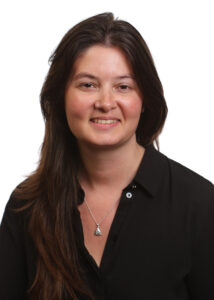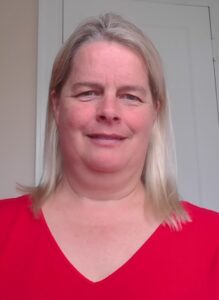Patient-oriented research project “a humbling” experience for research team
William was 14 when he was finally diagnosed with Fetal Alcohol Spectrum Disorder (FASD), but his mom believes the signs were there long before. As a preschooler, William was energetic and lively, but when he started school, his behavior began to raise concerns.
“Before my diagnosis, I always felt like a bad kid,” William recalled. “I felt more out of control than I do now. It seemed like everything was against me, and everything I did was my fault.”
After a year of evaluations and four misdiagnoses, William finally received the correct diagnosis. But the reality was that his symptoms had been present for years.
Even after William’s diagnosis, life didn’t instantly improve. It was a steep learning curve for everyone involved. His family had to undergo training to better understand Fetal Alcohol Spectrum Disorder (FASD) and how to cope with its challenges.
“They started realizing it wasn’t just me trying to cause trouble,” William explained. “I began to improve because I finally had the tools I needed to grow as a person.”
Now 20, William works part-time and is a Patient/Public Partner with his mom, Nadia, on a research project to improve the referral process for others.
“We often treat these kids as if they’re behaving badly, but it’s not bad behavior—it’s a symptom,” said Nadia. “He wasn’t trying to do bad things; he was being misunderstood. The sooner a diagnosis is made, the sooner this can be understood.”
There’s a common misconception that children with FASD aren’t smart, so professionals often looked for failures in school. But William was a bright kid with no academic delays.
Today, Nadia works at the NB FASD Centre of Excellence, where she often encounters children and youth who have gone through six to eight previous misdiagnoses.
“And there are still people who struggle to get a diagnosis,” she noted. She hopes to see earlier diagnoses and more education for both doctors and patients.
These concerns are shared by Moncton-based researchers Carly Demont, Dr. Marie-Eve Laforest, and Dr. Nicole LeBlanc, who are leading the research project titled: The Endless Waiting Game: A Patient-Researcher co-led qualitative study on New Brunswick youth’s experiences seeking a Fetal Alcohol Spectrum Disorder (FASD) referral.
New Brunswick study transforming attitudes about patient engagement in health research
The research, supported by the Maritime SPOR SUPPORT Unit (MSSU), is a collaboration between Vitalité Health Network, the NB FASD Centre of Excellence, and Université de Moncton. Their work is part of two interconnected studies focuses on the hidden struggles in referring for FASD and the pressing need for earlier intervention.
The first study, titled “Medical Diagnoses and Use of Health Resources Prior to FASD Diagnosis: A Retrospective Descriptive Study,” found youths may see up to 10 different healthcare providers and receive multiple misdiagnoses before finally being correctly diagnosed with FASD. These delays can lead to frustration and stigma, reinforcing the misconceptions that families like Nadia’s have struggled against.
Patient partners like Nadia and William were an integral part in the research project from the beginning.
“We moved from seeing patients as validators to seeing them as equal partners. Their involvement has led us to co-construct the research, making our project stronger and more inclusive,” said Dr. LeBlanc. “Their lived experiences ensure our findings are not only scientifically robust but also personally relevant. This people-centered approach is transforming our research.”
The experience has been humbling for the research team, particularly for those new to patient-oriented research.
“It’s been a constant learning curve,” said Carly Demont. “We’re very task-oriented, and it’s been a big adjustment to slow down and ensure we’re all on the same page. This makes our research richer and more robust.”
Dr. Marie-Eve Laforest echoed this sentiment, initially believing her role was solely to handle the scientific aspects of the research. She was unsure how much to involve the patient partners in that process, but now she realizes their inclusion is essential. “We are all equals, and each contribution makes the project stronger.”
The experience has also been positive for Nadia and William.
“I feel everyone had a good part,” William shared. “I designed the FASD poster for the questionnaire, helped form the questions, and provided support on how to approach someone and work with the parent, not just the kid.”
The Future
The ultimate goal is to prevent others from enduring the same struggles that William and so many others have faced. William, reflecting on his involvement, noted how living with FASD offers a perspective that differs greatly from studying it. “I would participate in research again,” he said. “It’s important because living with a disorder is different than just studying it.”
As the project progresses, the team hopes to see long-term benefits that extend beyond the immediate research. “We aim to share our findings with the FASD community and healthcare providers, ultimately improving the healthcare system,” said Demont.
The positive outcomes of this project have also inspired the researchers to continue involving patient partners in the future. Dr. Laforest expressed her newfound commitment, saying, “Now, I regret not having patient partners in my previous projects. Their contributions are invaluable, and I want to integrate them into all my future projects.” Dr. LeBlanc concluded with a hopeful vision for the future, “My goal is for patient partners to present the results. Their involvement makes our projects credible and impactful, ensuring that the research is truly meaningful for those it aims to help.”
At a Glance
Issue
Fetal Alcohol Spectrum Disorder (FASD) is a multifaceted disorder that requires a quick and accurate diagnosis. However, patients often spend a long time in the healthcare system before being correctly diagnosed. To date, there is limited information available about what these patients go through before being referred for an FASD diagnosis. By capturing these lived experiences during the pre-referral pathway, this will lead to a quicker diagnosis, and subsequently improve the healthcare system for those living with FASD.
Research
With support from the Maritime SPOR SUPPORT Unit, a team of Moncton researchers from Vitalité Health Network and the Université de Moncton are leading a study looking at New Brunswick youth’s experiences in the health care system before being referred to the NB FASD Centre of Excellence. The research integrates patients as equal partners in the research team. This process ensures the research remains relevant and grounded in real-world experiences. The research is a continuation of a previous descriptive study: “Medical diagnoses and use of health resources prior to a FASD diagnosis” which looked at the amount and frequency of patient’s diagnoses and visits with healthcare professionals prior to be referred to the NB FASD Centre of Excellence
Impact
As a result of this research project, there will be a better understanding of the barriers New Brunswick youth face navigating the healthcare system prior to receiving a referral for an FASD diagnosis. The impact of this project is expected to extend beyond the province by also influencing change in the referral process in other regions of the country. The research aims to produce findings that are scientifically robust, and relevant to both Canadian FASD organizations and FASD communities, partners, patients, and families. The inclusion of patient perspectives greatly enhances the credibility and impact of the research, and ensures that the research is relevant and valuable to those who have FASD.


